After 75 years of Jammu and Kashmir’s accession, the ruling BJP is holding Independent India’s first Prime Minister, Jawahar Lal Nehru of a series of “blunders” on Kashmir. Initiated by Law and Justice Minister, Kiren Rijiju, the narrative holds Maharaja Hari Singh on a much higher pedestal than Nehru and Sheikh Abdullah, Tahir Bhat reports the raging debate that is on for more than a month now

More than 58 years after his death in May 1964, Pandit Jawahar Lal Nehru, the first Prime Minister of independent India is literally on a trial. He is being accused of a serious compromise that delayed the joining of Jammu and Kashmir with the Union of India in latter 1947 when India and Pakistan were born out of the subcontinent’s division on communal lines.
Whether or not the “virtual trial” is aimed at rewriting history, the controversy is a key indicator that Kashmir is going to be a key subject in the next national elections. With Article 370 of the Constitution of India read down on August 5, 2019, the Jammu and Kashmir integration with the union is expected to be the key poll plank.
The eruption of the controversy coincided with certain interesting developments.
Blome in Muzaffarabad
The US ambassador in Islamabad, Donald Blome visited the Pakistan-administered Kashmir (PaK) for two days, following which its embassy issued a detailed statement on October 5, detailing his interactions in, what it said “Azad Jammu and Kashmir (AJK)”.
Apart from laying a wreath to honour the victims of the 2005 earthquake, Blome had detailed interactions with executives of the other Kashmir. After visiting the Muzaffarabad University, Blome interacted with 950-member “Muzaffarabad chapter of the Pakistan-US Alumni Network” and later flew to Bagh where he interacted with IT services company MTBC (Care Cloud) where 2525 workers – 20 per cent of them women, work. He also inaugurated the US Healthcare company’s HeadStart School where 750 students are enrolled.
Blome’s PaK visit was seen as US’s re-engagement with post-Imran Khan Pakistan. It has already led to Joe Biden administration offering a US $450 million “sustenance package”, a sale, for Pakistan’s F-16 fleet. Besides, the US has extended humanitarian support of US $970 million to fight the devastation triggered by one of history’s major floods.
India reacted to Blome’s visit and his use of “Azad” in the context of PaK.“Our objection to the visit and meetings in PoJK (Pakistan Occupied Jammu Kashmir) by the US Ambassador in Pakistan has been conveyed to the US side,” Arindam Bagchi, the MEA spokesman, told The Hindu. Unlike Pakistan, the newspaper said that the US has not posted its ambassador since January 2021, when Kenneth Juster demitted from office.
Germany Pakistan Presser
There was another development. On October 7, 2022, German Foreign Minister Annalena Baerbock addressed a joint press conference with Pakistan’s counterpart, Bilawal Bhutto Zardari in Berlin. “Germany has a role and responsibility with regard to the situation of Kashmir,” Baerbock said after bilateral talks with Bhutto. “Therefore, we support intensively the engagement of the United Nations to find peaceful solutions in the region.” She praised the LoC ceasefire agreement of February 2021 and also called for a “political dialogue” between the two nuclear-armed neighbours. “We encourage Pakistan and we encourage India to follow the track of the ceasefire, to follow the track of the United Nations, and to intensify the political dialogue, and also the political and practical cooperation in the region,” she said.
German commentary came barely within 48 hours after Home Minister, Amit Shah on October 5, in Baramulla ruled out any talks with Pakistan. Instead, he said he would talk to the youth of Kashmir.
Bagchi strongly reacted to the statement. He said “serious and conscientious members of the global community” should call out international, cross-border terrorism. “The Indian Union Territory of Jammu and Kashmir has borne the brunt of such a terrorist campaign for decades. This continues till now,” Bagchi said. “When states do not recognise such dangers, either because of self-interest or indifference, they undermine the cause of peace, not promote it. They also do grave injustice to the victims of terrorism.”
PM’s Gujarat Speech
With these developments already on newspaper front pages, Prime Minister Narendra Modi landed in Gujarat on October 10, 2022. In the state that is going to polls this year, which he headed many times before moving to Delhi, Modi spoke to a huge gathering at Amod in Anand district.
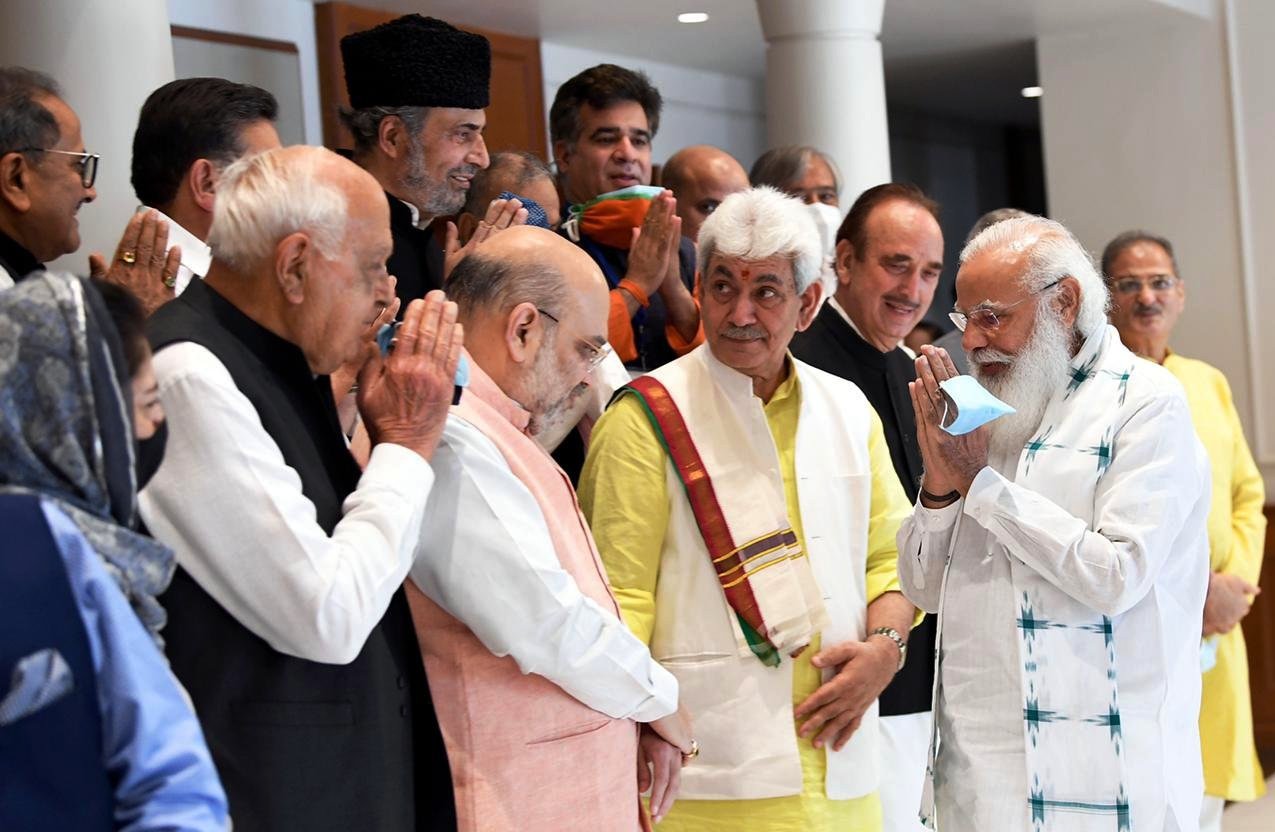
There, he said he was able to resolve the long-pending Kashmir issue. “Sardar (Vallabbhai Patel) saheb persuaded all the princely states to merge with India. But another person handled this one issue of Kashmir,” Modi told the gathering, skipping mention of Nehru. “As I am following the footsteps of Sardar saheb, I have values of the land of Sardar and that was the reason I resolved the problem of Kashmir and paid true tributes to Sardar Patel.”
This marked the beginning of the Nehru controversy. To Modi’s statement, Pakistan and Congress, reacted strongly, for their own reasons. Pakistan Foreign Office said the statement was “not only false and misleading but also reflects how oblivious the Indian leadership has become of the ground realities.”
Congress’s spokesman Jairam Ramesh reacted to the statement. “The Prime Minister has once again whitewashed real history. He overlooks the following facts only to castigate Nehru on J&K. All this has been documented well in Rajmohan Gandhi’s biography of Sardar (Vallabhbhai) Patel. These facts are also known to the Prime Minister’s new man (Ghulam Nabi Azad) in J&K,” Ramesh said. “1. Maharaja Hari Singh dithered on accession. There were dreams of independence. But when Pakistan invaded, Hari Singh acceded to India. 2. Sheikh Abdullah championed accession to India entirely because of his friendship with and admiration for Nehru, and his respect for Gandhi. 3. Sardar Patel was okay with J&K joining Pakistan till September 13, 1947, when the Nawab of Junagadh acceded to Pakistan.”
Rijiju Jumps In
Ramesh’s response marked the beginning of the ‘trial’. India’s law and justice minister and senior BJP leader, Kiren Rijiju got into the Kashmir accession’s history ring. He wrote a series of tweets on the micro-blogging site.

“Historical lies are being told about Maharaja Hari Singh of Kashmir for a long time to defend the dubious role of Jawaharlal Nehru,” Rijiju said in the first of a series of tweets. “That historical lie is that Maharaja Hari Singh was nervous about the accession of Kashmir to India. I repeat Nehru’s statement to expose Jairam Ramesh’s lie.”
After the Delhi agreement with Sheikh Abdullah, Nehru made a long speech to the Lok Sabha on July 24, 1952. “The first time Maharaja Hari Singh approached Nehru for accession to India was July 1947 itself, a full month before Independence. It was Nehru who rebuffed the Maharaja,” Rijiju wrote, sharing the clips from Nehru’s speech.
Placing things in context, Nehru had told Lok Sabha that Congress had got “an informal offer of Kashmir” to join India but “we advised him” that Congress had contacts with National Conference and Maharaja. Nehru had said: “This was before partition and independence. We had made it clear that even if the Maharaja and his government had expressed their desire to merge with India, we would have wanted something else from them. That is, before taking this step, the opinion of the people there should be taken. We didn’t want any cleverness to get anything on paper.” He had further added: “Although many leaders there personally wanted the merger, but they also knew the mood of their people, so they said that the initiative should be from the people and not from the government of Maharaja. Only then will a decision be sustainable. We completely accepted his point. That’s why we gave a message to the Maharaja’s government and popular leaders not to rush for merger. For this one should wait till some way of knowing the intention of the people is found.”
“Here is Nehru in his own words on why it was not Maharaja Hari Singh who delayed Kashmir’s accession to India but Nehru himself. Maharaja had approached in July 1947 itself, like all other Princely States. Other states were accepted. Kashmir was rejected.” Summing up his response, Rijiju said that Nehru made Kashmir an exception unlike other states because Nehru wanted much more. “What was that much more? Truth is, India is still paying the price for Nehru’s follies,” he tweeted.
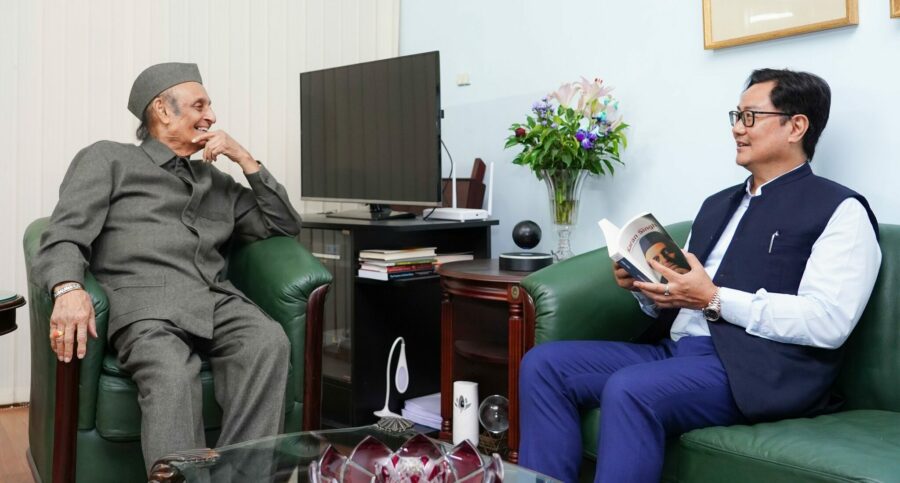
Rijiju further alleged that Nehru had not only turned down Hari Singh’s request for the merger in July 1947 but also rebuked him in October 1947. Nehru had personally told the Lok Sabha: “I remember that perhaps on 27 October, after a day’s tussle, we came to the conclusion in the evening that despite all the risks and dangers, we could not refuse the Maharaja’s appeal and we must now help him. It was not easy.”
Rijiju built the case further. On October 27, 2022, the anniversary of Jammu and Kashmir’s accession to India, he wrote a brief write-up and shared it on his Twitter. The principle of partition lacked a provision for consultations with the people, he said. “All matters relating to accession were to be decided only between the ruler of the princely states and the leaders of the respective dominions,” he wrote, asserting that all were integrated with India before August 15, 1947. “Two princely states created problems – Hyderabad and Junagarh. But Sardar Patel out-manoeuvred them both, using his exemplary skills of persuasion, tact and willingness to use force if required.”
In the case of Kashmir, Rijiju said Nehru created the problem “to fulfil his personal agenda”.
“There was no requirement to seek popular approval of the people of princely states as per the Indian Independence Act. All that mattered was the willingness of the ruler to join the Indian union. That is exactly what the other princely states did,” wrote Rijiju, indicating the delay in accession between July and October 1947, creating a vacuum in Kashmir that allowed Pakistan to meddle in Kashmir.
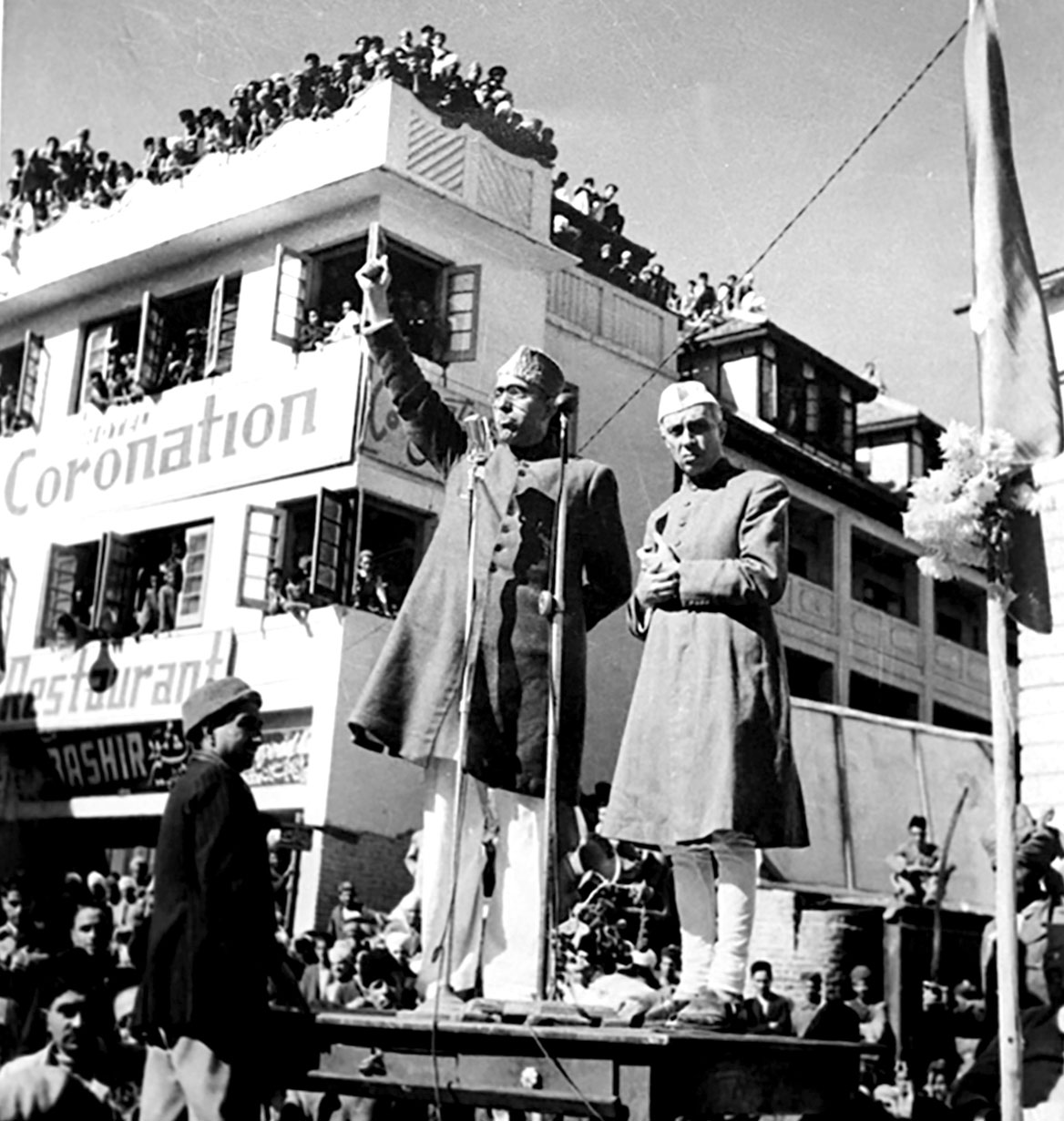
October 21, 1947, a day after the Pakistani invasion, Nehru wrote to Jammu and Kashmir’s Prime Minister, MC Mahajan the undesirability of making “any declaration of adhesion to the Indian Union at this stage”. However, he suggested to him the “urgency of taking some steps like the formation of a provisional government” under Sheikh Abdullah. “The deal could have been done then itself, and the chapter closed forever if Nehru had forsaken his personal agenda and thought only of India first,” Rijiju wrote, insisting Nehru was “waffling” even when “Maharaja had unilaterally signed the instrument of accession.”
“With the issue of accession settled (unlike the limbo that actually existed), there would have been no Pakistani invasion, no Pakistan-Occupied Jammu and Kashmir (PoJK), no reference to the United Nations, no locus for Pakistan to fight the wars on Kashmir in later decades, no jihadi terrorism and no uprooting of Kashmiri Hindus in 1990. As late as October 21, 1947, if Nehru had acted in time, there would still be no PoJK,” the law minister wrote.
Even after the accession took place, Rijiju talked about another “Nehru’s blunders”, when he declared “the eventual accession as provisional”. He asked: “Maharaja Hari Singh signed exactly the same instrument of accession as every other princely state. All other princely states were unambiguously integrated into the union, except Kashmir. Why?” He mentions Nehru’s letter to Mahajan on October 26, that said: “The Government of India will accept this accession provisionally subject to the declared policy that such matters should be finalised in accordance with the will of the people”.
Talking about, the “Third Nehruvian Blunder on Kashmir”, Rijiju wrote that he approached the United Nations on January 1, 1948, “under Article 35 which deals with disputed lands rather than Article 51 which would have been the correct article to highlight Pakistan’s illegal occupation of Indian territory”. His argument is that Maharaja had signed only one instrument of accession and that was with India thus giving a locus to Pakistan by himself accepting Kashmir as a dispute. “Since then, the UN resolutions have continued to haunt India.”
The “Fourth Nehruvian Blunder on Kashmir”, Rijiju wrote was “to let the myth perpetrate that a UN-mandated plebiscite in Kashmir was being stopped by India.”
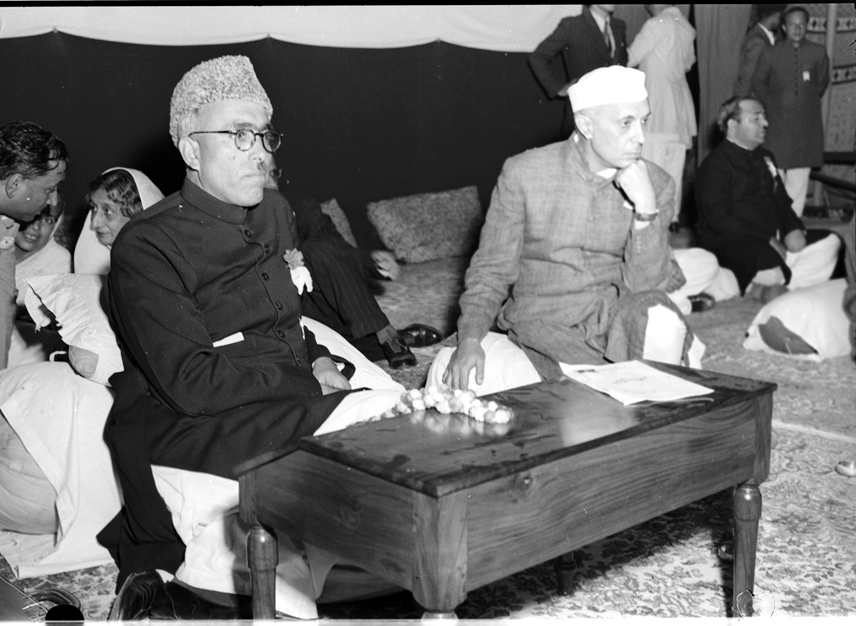
His argument: “On August 13, 1948, United Nations Commission for India and Pakistan (UNCIP) resolution had three conditions in sequential order. First, ceasefire. Second, the withdrawal of troops by Pakistan. Third, plebiscite. Part III was contingent on Parts I and II being fulfilled. Ceasefire came into effect on January 1, 1949, but Pakistan refused to withdraw its troops from occupied territories..Therefore, on December 23, 1948, the UNCIP concurred with Indian aide memoir (Indian letter to UNCIP seeking clarification) that Part III was not binding in absence of Part I and Part II being fulfilled. This was further confirmed by the UNCIP in a resolution on January 5, 1949. Therefore, UNCIP itself accepted that any talk of the plebiscite as per its resolution was infructuous due to Pakistan not fulfilling Part II of the UNCIP resolution. And yet, the sword of plebiscite keeps hanging on India. Why? Because Nehru himself had opened that door!”
The Law Minister sees “the creation and perpetuation of Article 370 (Article 306A in the interim draft of the Constitution)” as the “Fifth Nehruvian Blunder on Kashmir”. He believes the “special” provision was not required because “the instrument of accession was the same as every other princely state signed”. Nehru had his way and the “Article 370 came into existence, thereby institutionalizing the separatist mindset that hung like a noose around India’s neck.”
These “blunders of one man” for which India “paid a heavy price” were undone by Prime Minister Narendra Modi by annulling Article 370.
Congress Response
Terming BJP as “students of “WhatsApp nursery”, Congress leaders said the right-wing party lacks an “idea of contemporary history” of the country. “You have been in power for eight years. What has been your achievement in those years in Jammu and Kashmir?” Congress spokesman Pawan Khera asked. “You cannot hold elections. You cannot protect Kashmiri Pandits. Is that your achievement? You must apologise for what happened in 1989, you must apologise for what is happening now.”
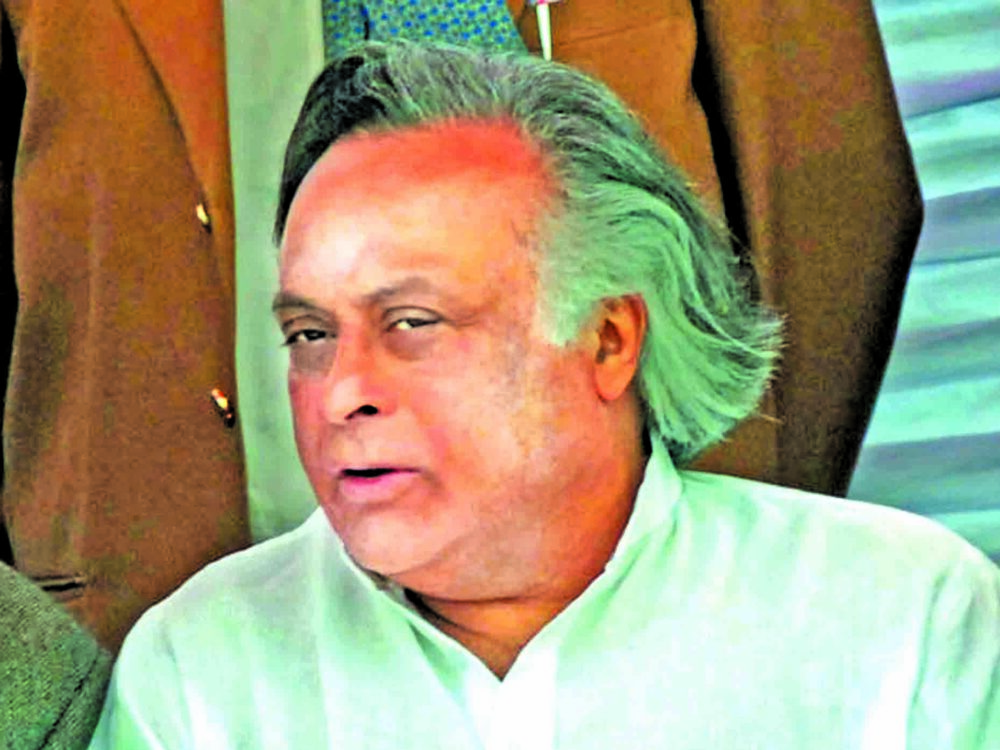
“I spoke to a BJP ideologue this morning about Kiren Rijiju, the latest entrant to the club of Distorians,” Congress’s Communication in-charge, Jairam Ramesh said in a tweet. “He (the BJP ideologue) sent me the following message: The strange thing is, Nehru being vilified is one thing, Hari Singh being exalted as some sort of upright & benevolent hero takes the cake.”
For his “ill-informed comments”, Anand Sharma sought an apology from Rijiju. “I can only pity the mental bankruptcy of Minister Rijiju. He has no understanding of history, there is no proof, no evidence,” Sharma was quoted saying. “The account of that period in 1947 has been carefully documented not by one but more than one person who was directly associated with the merger of princely states.”
Heir Apparent Writes
The controversy was opportune enough for Dr Karan Singh to jump in. In a commentary that Hindustan Times published on November 2, 2022, Singh, Kashmir’s only Sadr-e-Reyast stated that his purpose of writing was to clarify “my father’s role”. On October 26, 1947, he was wheelchair bound so he could not witness the signing of the instrument of accession.
“Rijiju asserted that my father was ready to accede to India well before August 15, but that Jawaharlal Nehru was reluctant to accept it unless it had the support of the people, by which he obviously meant Sheikh Abdullah and the National Conference,” Dr Singh wrote. “I must admit that I have no knowledge of this; nor did the matter come up in palace conversations. It is possible that then deputy PM of Jammu and Kashmir, Ram Lal Batra, may have spoken informally to someone in Delhi, but there is no clear evidence that my father authorised this.”
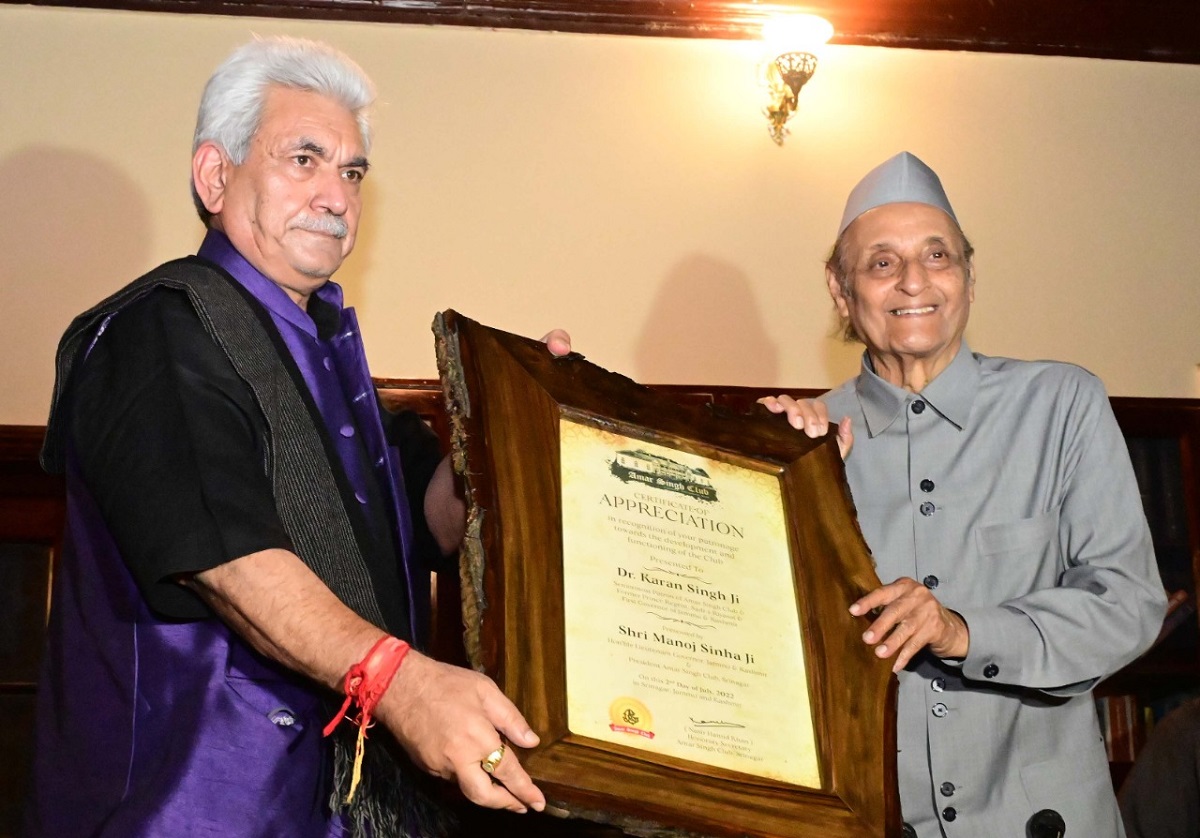
Dr Singh said that his father’s “thought process was clearly expressed in the covering letter he wrote to Lord Louis Mountbatten on October 26, 1947”, in which, he wrote: “As your excellency is aware, the State of Jammu and Kashmir has not acceded to the Dominion of India or to Pakistan. Geographically my State is contiguous to both the dominions. It has vital economic and cultural links with both of them. Besides, my state has a common boundary with the Soviet Republic and China. In their external relations, the Dominions of India and Pakistan cannot ignore this fact. I wanted to take time to decide which Dominion I should accede to, or whether it is not in the best interests of both the dominions and my state to stand independent, of course with friendly and cordial relations with both.”
The letter, Singh pointed out, “gives no indication that he had decided to accede well before Partition.” Concluding the write-up, he regretted that history was unkind to his father, Maharaja Hari Singh. “..within two years of signing the Instrument of Accession, Maharaja Hari Singh was virtually exiled from his state. Only his ashes returned when I brought them back from Mumbai and sprinkled them over the Jammu area in accordance with his will.”
Singh wrote that Rijiju’s allegations against Nehru were a “separate matter”. This irked Jairam Ramesh who retaliated: “There is not a single scholarly and serious work on J&K that portrays Maharaja Hari Singh in good light. Even this authoritative work by VP Menon doesn’t make Hari Singh a wronged man. It is hence natural that his son Dr Karan Singh defends him in the HT today. What I find surprising though is that Dr Karan Singh has sidestepped Rijuju’s hit job on Nehru. This, the same Nehru without whose support Dr Karan Singh wouldn’t have achieved much, as he acknowledges in his 2006 book with 216 letters exchanged between them during 1948-64. This is the same Nehru to whom Singh dedicated his book on Aurobindo in May 1962, and for which the country’s first PM wrote a wonderful foreword.”
Ram Madhav Adds
A day after Singh’s write-up, BJP leader Ram Madhav, who was earlier in charge of Jammu and Kashmir, wrote that “none of the Indian leaders were prepared to leave J&K to Pakistan” as the state had “the greatest strategic value, perhaps, in all India” as was emphasised by Mahatma Gandhi.
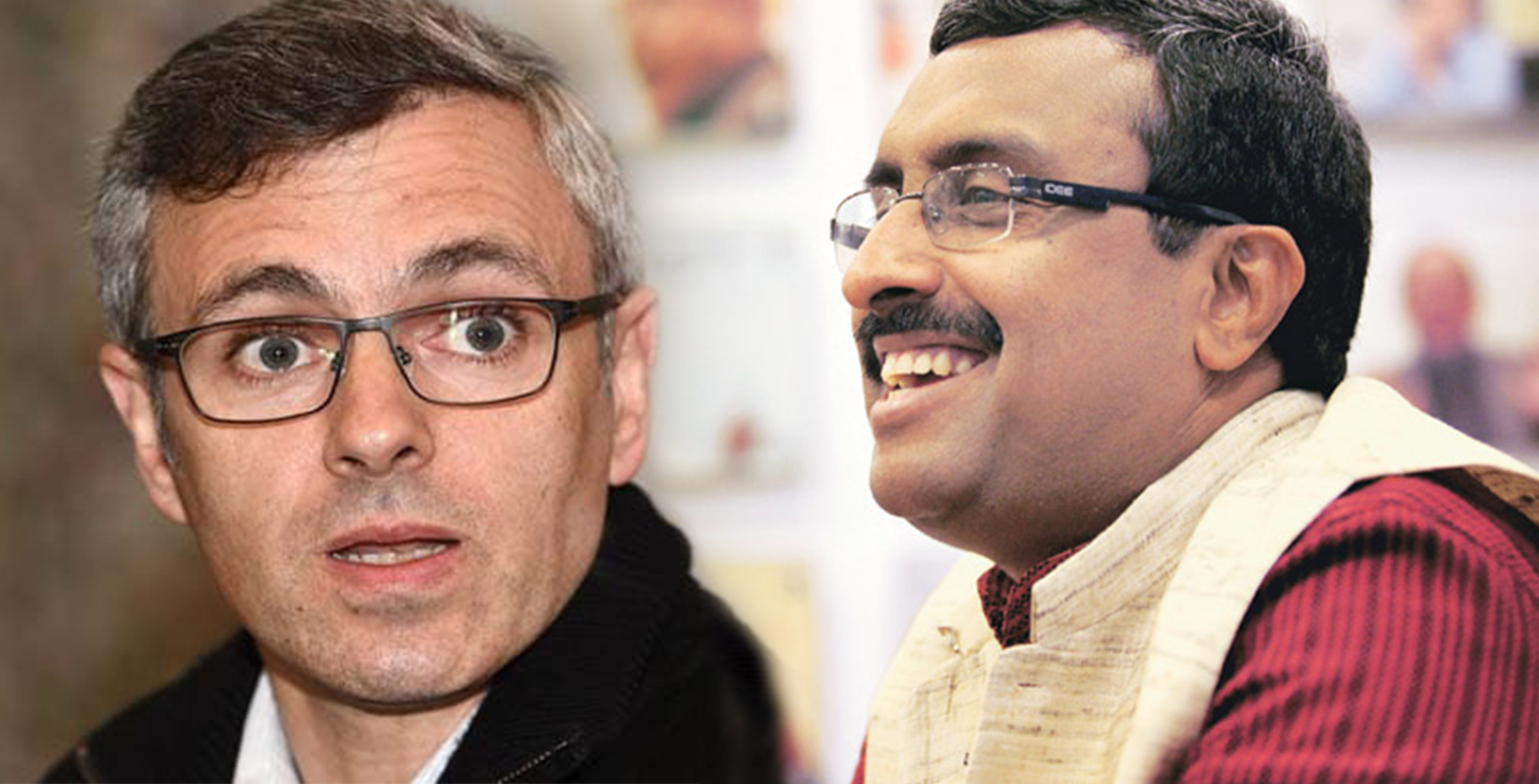
“That the Indian leaders were keen on not letting Kashmir go to Pakistan became clear when they managed to divide Gurdaspur district and secure two-thirds of it to East Punjab. Gurdaspur was the critical land link to Kashmir. It had a marginal Muslim majority of 51.2%. Mohammad Ali Jinnah was confident that the district would become a part of Pakistan, and consequently, the Maharaja of Kashmir would be left with no choice but to join him. But Jawaharlal Nehru and Patel determinedly prevailed upon the British to avert that eventuality,” Madhav wrote. “That paved the way for the accession of Kashmir to India, about which several myths exist.”
Madhav wrote that Hari Singh dithered as he had strained relations with Nehru. “This personal rivalry, together with the urge to remain independent, must have prompted the Maharaja to procrastinate on the question of accession,” he wrote, offering details about how the Maharaja was tried to be convinced. In May 1947, JB Kriplani visited Srinagar. Patel deployed rulers from Patiala, Kapurthala, Faridkot and some hill states to persuade him. Mountbatten visited Kashmir on June 17-23. All the missions failed. Finally, Gandhi visited in August and it brought some hope as “(RC) Kak resigned as PM on August 11 and the Maharaja opened negotiations with the Congress leadership. He also set Sheikh Abdullah free later that month and invited him for consultations.” It was Sardar Patel who recommended MC Mahajan as Maharaja’s Prime Minster.
Another Article
On November 14, Rjijiju wrote a follow-up to Nehru’s Panch Bhool. He wrote that when Hari Singh got Nehru arrested on May 20, 1946, when he had come to the rescue of detained Sheikh Abdullah, Nehru had “violently trampled his foot on the floor and told them that one day the Maharaja of Kashmir would have to repent and apologise to him for the discourtesy”. Embittered, Nehru “ruthlessly chose his time to avenge the discourtesy”. He wrote that, unlike Hari Singh, Nehru was aware of the tribal invasion well before it took place.
“Nehru could have forced Hari Singh to accept anything he wanted after the accession. This is exactly how it panned in every other princely state. Logic, national interest and common sense dictated that Nehru first get the country united, forever close the door to Pakistan by making Kashmir irrevocably accede to India and then later, if he was so enamoured by Abdullah, make him head the government. This would have been the ‘India First’ approach. But for some inexplicable reason, Nehru put Abdullah first and India second,” Rijiju wrote.
In Kashmir
In Srinagar, people are consuming the controversy without supporting a historian or a distorian. National Conference has avoided getting dragged into the controversy even though it has a legitimate stakeholding.
However, Mehbooba Mufti of the PDP could not stop commenting. “Had there been no relation between Jawahar Lal Nehru with Sheikh Muhammad Abdullah and relation with Kashmiris then J&K would not have been part of India,” Ms Mufti said. “If the present regime would have been in the government in 1947, Jammu and Kashmir could never have opted to integrate with India where there is no scope for secularism, democracy.”
The controversy has not settled. The show is on.















